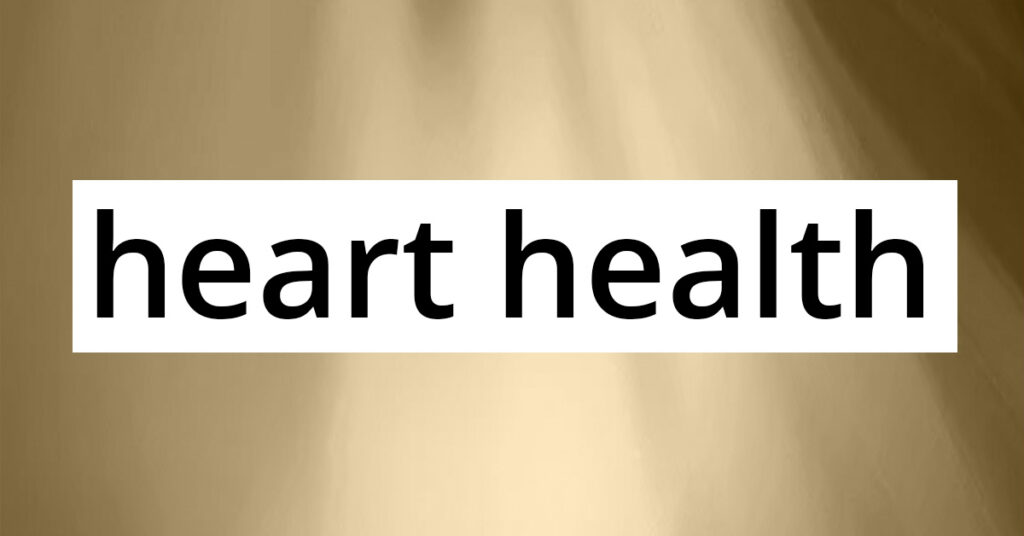Hello, my fabulous Menopause Mondays® readers!
Today, we’re diving into an essential topic that could be the key to unlocking the mystery of why heart disease risk skyrockets after menopause. And yes, you guessed it—cholesterol is taking center stage! New research presented at the European Society of Cardiology (ESC) Congress 2024 in London, UK, shows that women in the menopause transition period show changes in their blood cholesterol profiles, which could have an adverse impact on their cardiovascular health.
A Quick Cholesterol Primer
So, what is cholesterol, and why does it matter? Cholesterol is a waxy substance your body needs to build cells and produce hormones. Your liver makes all the cholesterol you need, but we also get cholesterol from animal-based foods like meat and dairy. When we consume too much, especially foods high in saturated and trans fats, it can lead to unhealthy cholesterol levels, increasing our risk for heart disease.
What’s the Scoop?
A groundbreaking study sheds light on how menopause affects our cholesterol levels and, ultimately, our heart health. Presented at the European Society of Cardiology’s annual meeting in London, this research is making waves in the medical community, and for good reason.
There were 1246 women studied over a median of 7 years, with a mean age of 42 for the peri-group, 54 for the post-group, and 34 for the pre-group. Of the women, 440 (35%) were pre-menopausal, 298 (24%) were peri-menopausal, and 508 (41%) were post-menopausal. The findings suggest that during menopause, a significant shift in blood cholesterol could make our hearts more vulnerable to disease.
The Good, the Bad, and the Cholesterol
So, what exactly happens during menopause? The study, conducted by Dr. Stephanie Moreno and her team at the University of Texas Southwestern Medical Center, found that as we transition through menopause, our cholesterol levels go through some not-so-friendly changes:
- Increase in “bad” LDL cholesterol: LDL, or low-density lipoprotein, is often labeled the “bad” cholesterol because it can lead to the buildup of plaques in your arteries, increasing your risk of heart disease.
- Decrease in “good” HDL cholesterol: On the flip side, HDL, or high-density lipoprotein, is the “good” cholesterol that helps remove LDL cholesterol from your arteries.
Now, here’s where it gets interesting—and a little scary. The study showed that as women move from premenopause to postmenopause, LDL cholesterol levels can increase by a whopping 8.3%! Meanwhile, our protective HDL levels take a nosedive, decreasing by 4.8%.
Compared to men, the cholesterol changes in menopausal women are even more pronounced. The study revealed a staggering 213% increase in LDL cholesterol for women during this transition.
Why Should You Care?
Heart disease is the leading cause of death for women, responsible for 40% of female deaths. You might hear terms like coronary heart disease (CHD) and coronary artery disease (CAD) used interchangeably, but they’re not the same. According to the American Heart Association, CAD leads to CHD. CAD occurs when plaque made of cholesterol builds up in the coronary arteries, limiting blood flow to the heart muscle, which can result in CHD.
While it’s well-known that our risk for heart disease increases as we age, this study offers new insight into why menopause seems to accelerate that risk. The adverse changes in cholesterol profiles may explain why postmenopausal women are at a much higher risk for cardiovascular disease, including coronary artery disease.
What Can You Do?
While more research is needed to fully understand the link between these cholesterol changes and heart disease, this study highlights the importance of monitoring your heart health, especially during and after menopause.
Here are some steps you can take:
- Get your cholesterol checked. Regular screenings can help you monitor your cholesterol levels and detect any harmful changes early. The best way to check your cholesterol is through a fasting blood test. This simple test requires you to fast (no food or drink except water) for 9 to 12 hours before blood is drawn. The test will measure your LDL, HDL, and total cholesterol levels, giving you and your doctor a clear picture of your heart health.
- Consider lifestyle changes: Diet, exercise, and quitting smoking can significantly impact cholesterol levels and overall heart health.
- Talk to your healthcare provider: If you’re going through menopause or are postmenopausal, discuss this study with your doctor. It might be time to consider earlier interventions to protect your heart.
Menopause is a time of significant change, and while it brings many challenges, it’s also a time for us to take charge of our health. Understanding the role of cholesterol in heart disease risk gives us one more tool in our arsenal to live our best, healthiest lives through menopause and beyond.
Let’s keep our hearts strong.
Stay fearless, fabulous, and informed!
Suffering in silence is OUT! Reaching out is IN!
Sign up for Fearless VaginaTM A Crash Course in Mastering Menopause
Check out my fabulous Fearless VaginaTM Store
If you want to educate your employees, colleagues, or friends about menopause, look no further! Book Ellen for your next event.
Sign up for Menopause Mondays® Blogs
Be sure to follow me on Instagram, Facebook, and LinkedIn.
*EllenDolgen.com does not recommend, endorse, or make any representation about any tests, studies, practices, procedures, treatments, services, opinions, healthcare providers, physicians, or medical institutions that may be mentioned or referenced. The information, including opinions and recommendations, contained on this website is intended for informational and educational purposes only. Such information is not intended to be a substitute for the advice of an appropriately qualified and licensed physician or other healthcare provider.





